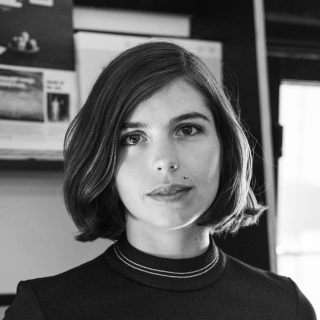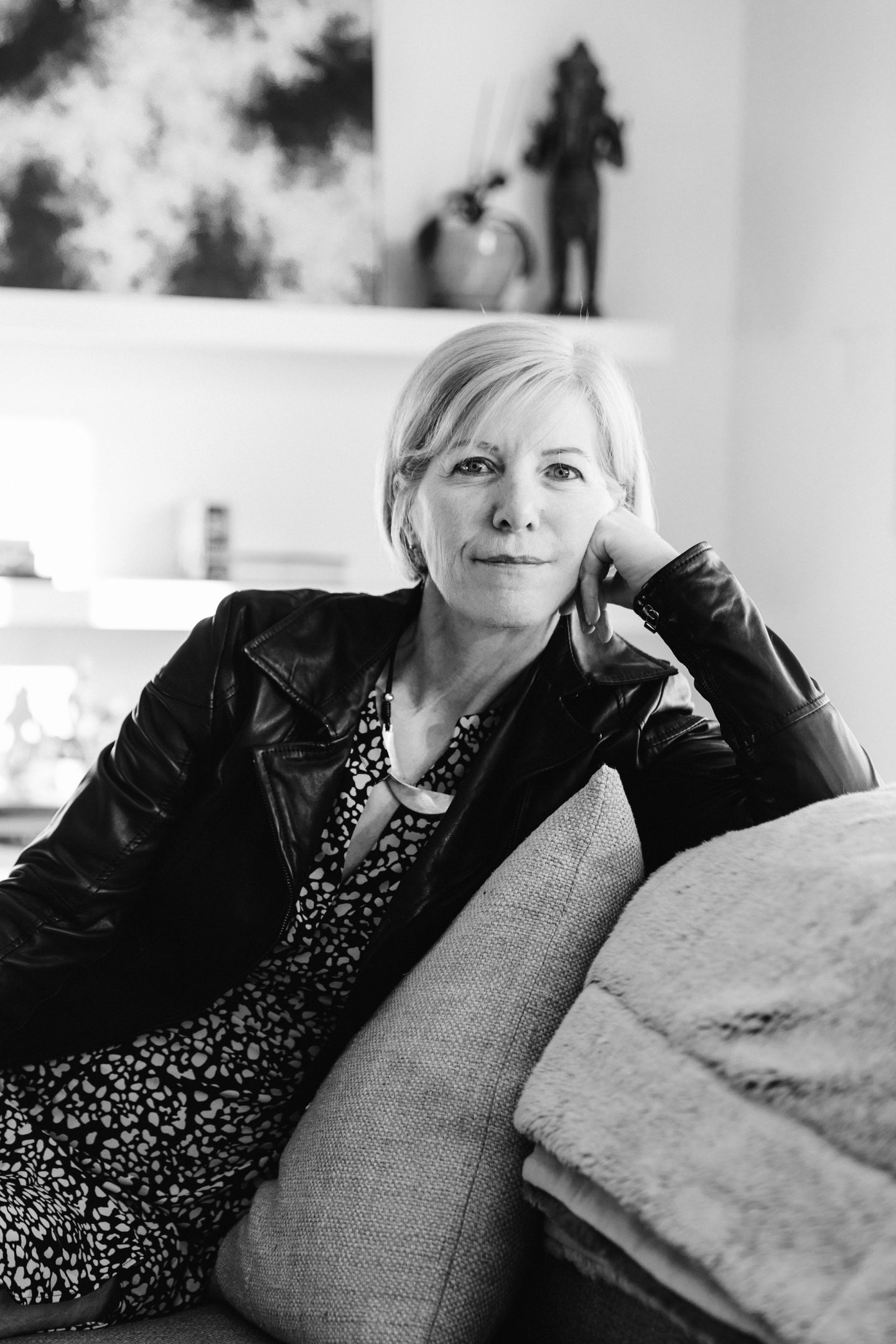
Farrin Foster
Farrin Foster is a journalist by trade, writer by ambition, and occasional film-maker by necessity. She lives and works on the sovereign lands of the Kaurna peoples.

As she makes the jump from deputy vice chancellor at the recently-embattled University of Adelaide to the top job at Swinburne Uni, Professor Pascale Quester reflects on the path that brought her to the city – and the one that will take her away.
In the inky blue pre-dawn on Grange Beach, Pascale Quester begins her daily run.
It’s a scene that has repeated almost every morning for the last 29 years. Later this month, the few other early risers who have long shared the sands with Quester will be left to wonder about her sudden absence.
But for now, she’s still here, in the southern city that the French-born academic has called her home for longer than anywhere else in the world. When she arrived in 1991, she was the University of Adelaide’s first lecturer in marketing. In the intervening decades, her rise has been as steady as it has been unlikely.
“Most people have a 30-year career and they get promoted to Senior Lecturer and that’s it,” Quester tells The Adelaide Review.
“By the time, in 1999, I went from Senior Lecturer to Associate Professor, I really wanted to become a Professor because everyone had been telling me it was impossible. That is a red flag. They’d say, they don’t promote Professors, they appoint them. And it’s especially not going to happen with a woman from marketing. The more they said that, the more I thought, ‘You just wait’.
“I don’t think ambition was the driver. After you have done something for seven or eight years, you go – what’s next? It’s more a low threshold for boredom.”
Quester became a Professor in 2002. To earn the promotion, she says she probably needed “twice as many publications and multiple times the responsibility” of a male counterpart. Rather than linger on this inequity, she pressed onward – eventually rising from the academic ranks into the University’s tightly-held executive team.
As she rose, Quester did a rare thing by continuing to be an active research academic in her specialist fields of consumer behaviour and sponsorship. The dual full-time roles of researcher and executive require a tireless capacity for work – a trait she developed while studying business at France’s prestigious Audencia Nantes School of Management. The expensive school was mostly attended by society’s upper crust, but Quester’s middle-class family (“neither of my parents finished school,” she says) expected that she pay her own way.
“I worked in an institution for teenage pregnant girls,” she says of the period. “I would start work at 10 o’clock at night and finish at 7 o’clock in the morning and then go and study. I had to go around every hour to check on babies, nappies, girls running out, the lot.
“I have been so many times to the hospital to deliver babies. It’s something I’m very grateful I had to do… the whole experience made sure I didn’t have a chance to get inflated with my own views because I was grounded every night.”
A top-three finish in her graduating year made Quester eligible for a Masters’ scholarship at Ohio State University in the USA. Upon graduating, she returned to France briefly before considering a junior lecturer role in New Zealand. Standing on the precipice of a new life, she baulked.
“There was an early morning flight from Nantes. My parents live about an hour away from there. I took a little plane to London and then I had an eight hour wait.
“At the time, it was cheaper to buy a return ticket for that first flight. So, I had a return ticket to Nantes and also a one-way ticket to Sydney, then Auckland, then Palmerston North.
“It was the longest eight hours of my life, where I could change my mind and just go back to Nantes … stay with all the people from home, or I have this one-way ticket to somewhere I’ve never been and that I had no idea about.”
Quester says she chose New Zealand largely because she couldn’t face telling her parents she had chickened out. It was a conference presentation she gave in Tasmania while a lecturer at New Zealand’s Massey University that landed her the Adelaide role. On a 40-degree day in January of 1991, she flew into South Australia– and did not immediately fall in love.
“I landed and thought – not a tree fern in sight, the place is flat as a pancake, Australia is not at all like New Zealand.”

But the city became the setting for her life. Here, Quester has married, raised two children (both adopted – “I had worked in a place where nobody wanted the children that were born. It seemed obvious that … should be the first port of call,” she says), divorced, welcomed a greyhound to her home, and found a new life partner.
Her beachfront house is filled with comfortable couches, soaring canvasses painted by Indigenous artists and diminutive, organically-shaped ceramics. Every Saturday morning without fail she heads to the Central Market, a place she says, in its diversity, quality, and leisurely atmosphere, is a litmus test for Adelaide. “Whenever I have tried to attract talent to the University of Adelaide, I would always make sure… they could go to the Central Market on Saturday. And if they got what it was about, they always took the job.”
Adelaide has become her home, but now she is preparing to leave. At the University of Adelaide she has climbed the ladder and, sitting just below the top job, appears to have reached a ceiling. In August, Swinburne University of Technology in Melbourne will welcome her to the role of vice chancellor. There, she will be the boss.
At Swinburne, Quester hopes to lead a university that is technology-focussed and niche. “There is the possibility of inventing the prototype of a future-facing university at Swinburne,” she says. “There are ten universities in Victoria and 40 in Australia. It is the innovative and the creative ones that will survive.”
Quester began searching for this job more than a year ago, but her exit from Adelaide is timely. Her former employer has fallen into crisis with University of Adelaide vice chancellor Peter Rathjen the subject of an extraordinary investigation by the Independent Commissioner Against Corruption. Even though Quester is on her way to lead Swinburne – a university that, like all in Australia, faces a multi-million dollar shortfall due to the COVID-19 pandemic – it is a good time to go.
“I got the job on February 23… and the world changed dramatically within the month. I was confronted with a $75 million deficit,” she says.
“One of the things we will do in relation to COVID-19… I am going to pare down everything that doesn’t speak to technology or science. Because, do we need to be the 10th university that teaches Chinese or Italian? No… we are the Swinburne university of technology, we are going to be working with industry and students on creating the technology of the future.”
But for Adelaide, this is a loss of a pragmatic, intelligent, and forward-thinking leader that will be felt keenly – by the students she involved in co-creation of projects like The Hub; by the colleagues who enjoyed her forthright contributions to a conservative institution; and by the early beach goers at Grange who have become accustomed to her running past as the light breaks on the horizon.

Farrin Foster is a journalist by trade, writer by ambition, and occasional film-maker by necessity. She lives and works on the sovereign lands of the Kaurna peoples.